OUR FIGHT

Preserving Jacksonville’s Unique Natural Beauty
Deep in the heart of Jacksonville’s stunning scenery, you’ll find a special phenomenon known as the Spartina Marshes. It’s not your regular marsh; it’s a lively place where nature has its own rhythm. The tide acts like its heartbeat, orchestrating a dance of water, nutrients, and a wide variety of flora and fauna.
Although resilient, the marsh now grapples with the effects of regular inundation by saltwater. This constant struggle weighs heavily on its inhabitants, forcing them into harsh adaptations in order to survive in the face of salt water and low oxygen levels. Only the hardiest plants and animals can make it in this ever-changing habitat, where the delicate balance is constantly upset.
Recognizing What We Have to Lose
For avid outdoors people in Jacksonville, this marshland isn’t merely a geographical feature but an integral part of a lifestyle that sets the city apart. The tidal marsh, characterized by its herbaceous community and the interplay of tides, encapsulates the essence of Jacksonville’s natural allure. From the mesmerizing large tidal swings to the graceful dance of redfish navigating through the grass systems, this ecosystem is found nowhere else in the state of Florida.
We need a call to action, not confined to a select group of fishing enthusiasts but including all who cherish Jacksonville’s unique outdoor experiences.
The Environmental Challenges We Face
St. Johns River shows us the consequences of century-long human interventions. Dredging and reshaping efforts have altered the river’s course and depth. This transformation raises significant environmental concerns.
The river’s mouth, once a natural defense against storms, has undergone drastic modifications. Before modification the deepest part of the river was a mere 18 feet. After recent dredging it now stands at 47 feet. This raises concerns about heightened storm surge and flooding, impacting home insurance rates, property values, and intensifying damage to the surrounding area.
The Rodman Dam further restricts freshwater flow—at a minimum 150 million gallons per day—causing ecological imbalances reminiscent of disasters witnessed in the Everglades and Tampa Bay. The dam initially intended to last for 50 years now stands well beyond its anticipated lifespan, becoming a pressing concern for the environmental health of the St. Johns River. As time stretches beyond its intended duration, the Rodman Dam emerges not only as an obstacle to the river’s ecological balance but also as a potential hazard, emphasizing the urgency for thoroughly examining its condition and developing sustainable solutions to address the looming environmental risks.
Problems at a Glance
- Altered River Course: Straightening of the river mouth, deeper shipping channels, and a 30-foot depth change have disrupted the river’s natural balance.
- Saltwater Intrusion: The channel’s now 47-foot depth allows excessive saltwater intrusion, threatening the once-freshwater ecosystem and marking a stark transformation witnessed within just our lifetime: the disappearance of underwater vegetation in Duval county.
- Homeowner Woes: Rising insurance costs, property devaluation, and increased storm surge risks impact residents along the altered riverbanks.
- Rodman Dam Dilemma: The controversial dam restricts freshwater flow, disrupting the delicate river ecosystem.
- Historical Precedents: Similar regions like the Everglades and Tampa Bay have faced ecological disasters due to this type of human intervention. We need to avoid it here in Jacksonville.
Why It Matters
For those who revel in Jacksonville’s unique outdoor activities, these issues directly affect the quality of our experiences. The distinctive tidal swings and ecosystems that make Jacksonville exceptional are at risk. As stewards of the environment, we have a vested interest in solving the problem. Solving these issues ensures that we can continue enjoying the outdoors without compromising the ecological integrity that makes Jacksonville stand apart. It is not just an environmental concern but a call to preserve our way of life and the natural wonders that make Jacksonville truly special.
Beyond the realm of outdoor enthusiasts, these environmental challenges hold profound significance for all residents. The alterations to the St. Johns River not only jeopardize the unique outdoor experiences Jacksonville offers but also impact property values, increase storm surge risks, and potentially lead to an ecological disaster. The health of the river directly influences the city’s resilience, economy, and overall well-being, underscoring the collective responsibility to address these pressing environmental issues for the greater good of the entire community.
In the face of imminent threats to the St. Johns River’s ecological balance the time to act is now – a collective call to save our river, preserving its natural beauty and securing a sustainable future for generations to come.
Stay Informed!
SIGN UP FOR OUR NEWSLETTER
To stay up-to-date with Cowford Conservation!
